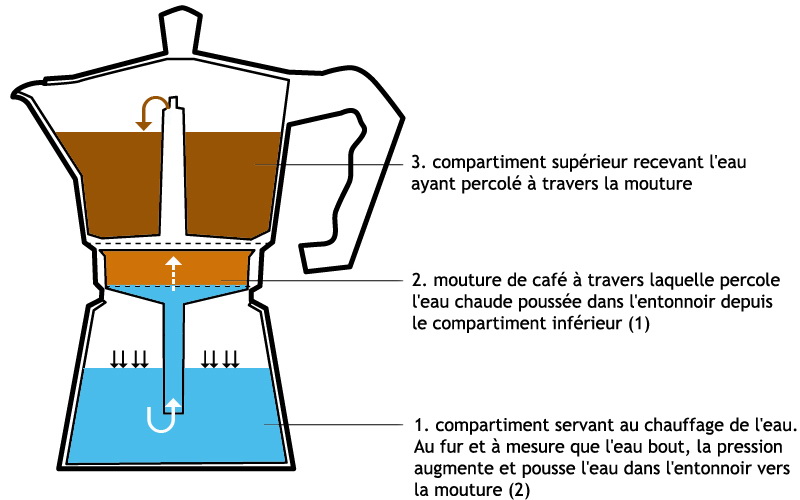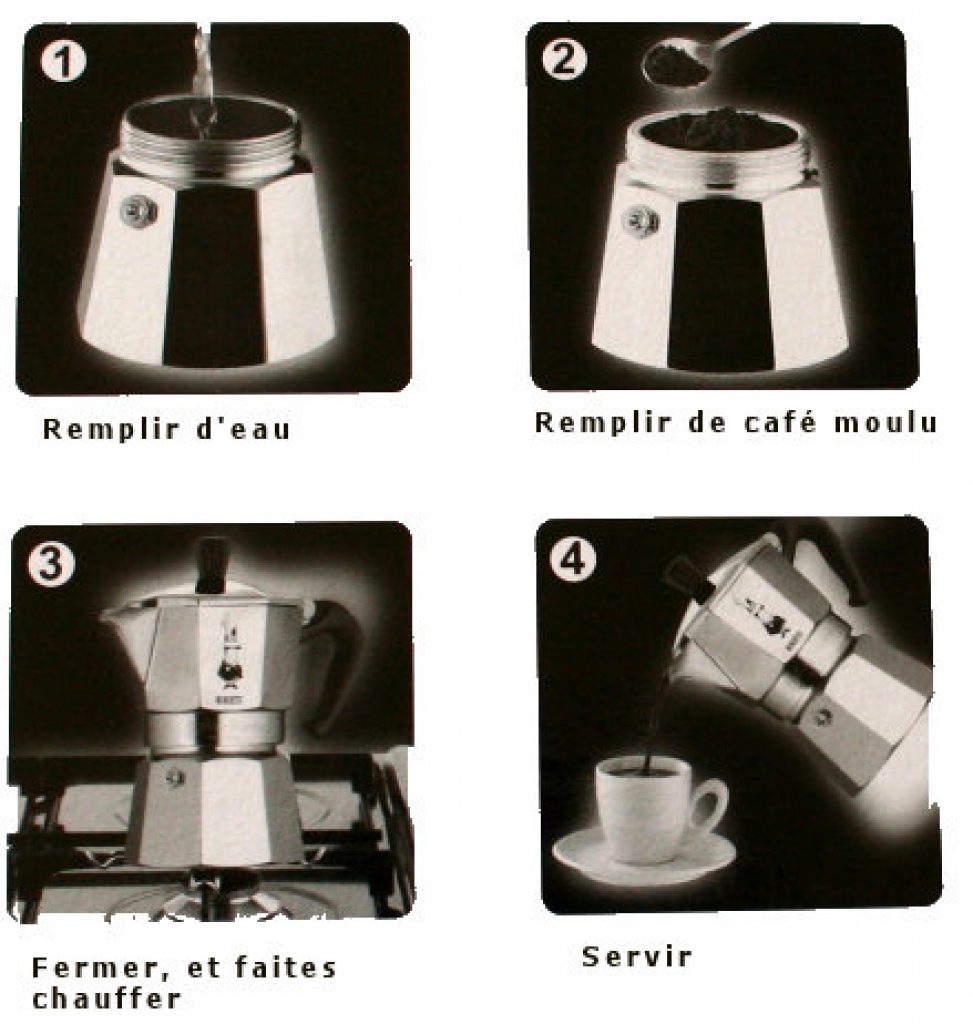How To Master The Art Of Using A Cafetiere Italienne: A Coffee Lover's Guide
Alright folks, let’s get real for a second here. If you’re reading this, chances are you’ve stumbled upon the world of cafetiere italienne and are wondering how to actually use the darn thing. Well, my friend, you’ve come to the right place. In this guide, we’re going to break down everything you need to know about using a cafetiere italienne, step by step, so you can brew like a pro in no time. This isn’t just about making coffee—it’s about crafting an experience.
Now, let’s be honest. There’s something magical about a cafetiere italienne. It’s not just another coffee maker; it’s a tool that lets you control every single aspect of your brew. From the grind size to the water temperature, you’re in charge. And trust me, once you get the hang of it, you’ll never go back to those instant coffee packets again. But first, you need to know how to use it properly, and that’s exactly what we’re here for.
So, grab your favorite mug, pour yourself a glass of water (or maybe a cup of tea if you’re feeling fancy), and let’s dive into the wonderful world of cafetiere italienne. By the end of this article, you’ll be brewing coffee like a barista, and your friends will be begging you to make them a cup too. Let’s get started!
Table of Contents:
- What is a Cafetiere Italienne?
- Why Use a Cafetiere Italienne?
- Step-by-Step Guide to Using a Cafetiere Italienne
- Common Mistakes to Avoid
- Tips for the Perfect Brew
- Types of Coffee Beans to Use
- Maintenance and Cleaning
- Troubleshooting Your Cafetiere Italienne
- Comparison with Other Brewing Methods
- Conclusion: Your Coffee Journey Awaits
What is a Cafetiere Italienne?
Alright, let’s start with the basics. A cafetiere italienne is essentially a French press, but with a little Italian twist. It’s a manual coffee maker that uses a plunger to separate the grounds from the liquid. The result? A rich, full-bodied cup of coffee that’s packed with flavor. But don’t let the name fool you—this little device is versatile and can handle more than just coffee. Tea, loose-leaf herbs, you name it.
Now, here’s the cool part: the cafetiere italienne gives you complete control over the brewing process. You can experiment with different grind sizes, water temperatures, and steeping times to find your perfect cup. It’s like having a personal coffee lab right in your kitchen. And hey, who doesn’t love a good experiment?
How Does It Work?
Simple, my friend. You add coarsely ground coffee to the bottom of the cafetiere, pour in hot water, let it steep for a few minutes, and then press the plunger down to separate the grounds from the liquid. Voila! A cup of coffee that’s as smooth as silk and as flavorful as a summer sunset.
Why Use a Cafetiere Italienne?
Let’s talk about why the cafetiere italienne is such a game-changer. First off, it’s affordable. You don’t need to spend hundreds of dollars on a fancy espresso machine to enjoy a great cup of coffee. Second, it’s easy to use. No complicated buttons or settings—just good old-fashioned manual labor. And last but not least, it produces some of the best coffee you’ll ever taste.
Plus, there’s something satisfying about the process itself. Pressing that plunger down feels like a small victory every morning. It’s like you’re saying, “Yes, I made this coffee, and it’s going to be amazing.” And you know what? It always is.
Step-by-Step Guide to Using a Cafetiere Italienne
Ready to brew your first cup? Let’s go step by step:
Step 1: Measure Your Coffee
You’ll want to use about one tablespoon of coffee per cup of water. If you’re using a scale, aim for a ratio of 1:15 (coffee to water). This ensures a balanced flavor without over-extracting or under-extracting your beans.
Step 2: Grind Your Beans
Coarse grind is king here. Think of the texture of sea salt. If your grind is too fine, the coffee will be over-extracted and bitter. Too coarse, and you’ll miss out on all those delicious flavors.
Step 3: Heat Your Water
Water temperature matters, folks. Aim for around 195-205°F (90-96°C). If you don’t have a thermometer, let the water sit for about 30 seconds after boiling. This gives it time to cool down just enough.
Step 4: Add Water and Stir
Pour the hot water over the coffee grounds, making sure everything is saturated. Give it a gentle stir with a wooden spoon or chopstick to ensure even extraction.
Step 5: Steep
Let the coffee steep for about 4 minutes. This gives the flavors time to develop without becoming overpowering. If you like your coffee stronger, you can steep it for a bit longer, but don’t go overboard.
Step 6: Press the Plunger
Slow and steady wins the race here. Press the plunger down firmly but gently to avoid stirring up the grounds. And there you have it—your very own cafetiere masterpiece.
Common Mistakes to Avoid
Even the best of us make mistakes sometimes. Here are a few pitfalls to watch out for:
- Using the Wrong Grind Size: Remember, coarse grind only. Fine grind will clog the filter and make your coffee taste bitter.
- Over-Steeping: Four minutes is usually enough. Any longer, and you risk over-extracting the coffee.
- Not Preheating the Cafetiere: Pouring hot water into a cold cafetiere can lead to temperature shock, affecting the flavor of your coffee.
- Pressing Too Hard: Ease up on the plunger, folks. Pressing too hard can damage the filter and let grounds slip through.
Tips for the Perfect Brew
Looking to take your cafetiere game to the next level? Here are a few tips:
- Experiment with Ratios: Try different coffee-to-water ratios to find what works best for you.
- Use Freshly Roasted Beans: Freshness matters. Coffee beans start losing flavor within a few weeks of roasting, so keep that in mind.
- Grind Your Own Beans: Pre-ground coffee just doesn’t cut it. Grind your beans right before brewing for maximum flavor.
- Store Your Cafetiere Properly: Keep it clean and dry to prevent any unwanted flavors from seeping in.
Types of Coffee Beans to Use
Not all coffee beans are created equal. Here’s a quick rundown of the best types to use with your cafetiere italienne:
Arabica vs. Robusta
Arabica beans are smoother and more flavorful, making them ideal for a cafetiere. Robusta beans, on the other hand, are stronger and more bitter, so they’re better suited for espresso.
Single-Origin vs. Blends
Single-origin beans give you a unique taste profile from a specific region. Blends, as the name suggests, combine beans from different regions for a more balanced flavor.
Maintenance and Cleaning
Cleaning your cafetiere italienne is super important. Leftover coffee oils can build up and affect the taste of your next brew. Here’s how to keep it in tip-top shape:
- Rinse it out immediately after use to remove any leftover grounds.
- Wash it with warm soapy water once a week.
- Disassemble the plunger and clean each part separately for a thorough clean.
Troubleshooting Your Cafetiere Italienne
Got a problem? Don’t panic. Here are some common issues and how to fix them:
- Coffee Tastes Bitter: Check your grind size and steeping time. Coarse grind and a shorter steeping time should do the trick.
- Grinds in the Coffee: Make sure the filter is properly assembled and not damaged.
- Cafetiere Leaks: Check the seals and ensure everything is tightened properly.
Comparison with Other Brewing Methods
Let’s compare the cafetiere italienne to some other popular brewing methods:
Espresso Machine
Espresso machines are great for a quick shot of caffeine, but they lack the depth and complexity of a cafetiere brew. Plus, they’re a lot more expensive.
Drip Coffee Maker
Drip coffee makers are convenient, but they often produce a watery, bland cup of coffee. With a cafetiere, you get full control over the brewing process.
Cold Brew
Cold brew is perfect for summer, but it’s not ideal for a morning pick-me-up. The cafetiere gives you that instant gratification without sacrificing flavor.
Conclusion: Your Coffee Journey Awaits
So there you have it, folks. The cafetiere italienne is more than just a coffee maker—it’s a way of life. With a little practice and a lot of love, you’ll be brewing the best coffee of your life in no time. Remember to experiment with different beans, ratios, and techniques to find what works best for you.
And hey, don’t forget to share your newfound coffee knowledge with your friends. They’ll thank you for it, and who knows? You might even inspire someone else to join the cafetiere revolution. Now go out there and brew like a pro!
Got any questions or tips of your own? Drop them in the comments below. Let’s keep the coffee conversation going!

👍 comment ça marche cafetière à piston

Comment utiliser une cafetière italienne ? Cafetiere italienne

Comment utiliser une cafetière italienne ? Cafetiere italienne